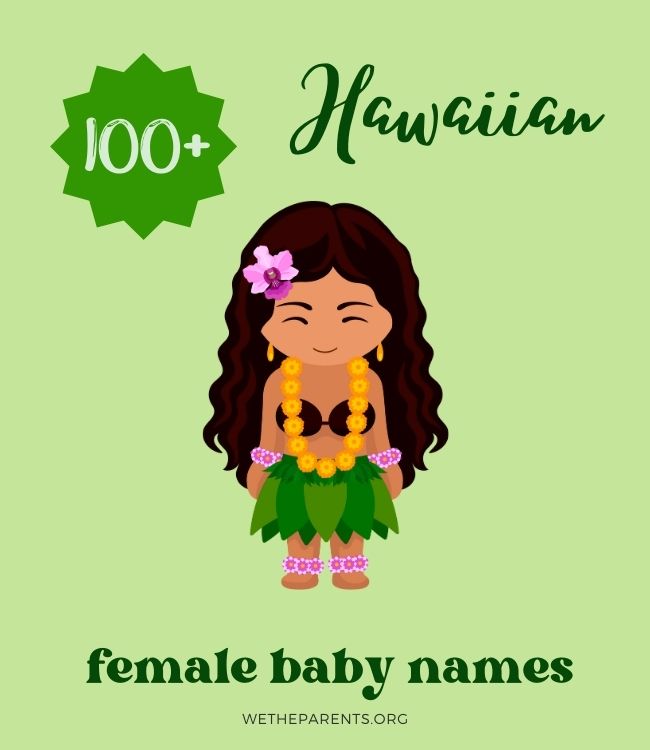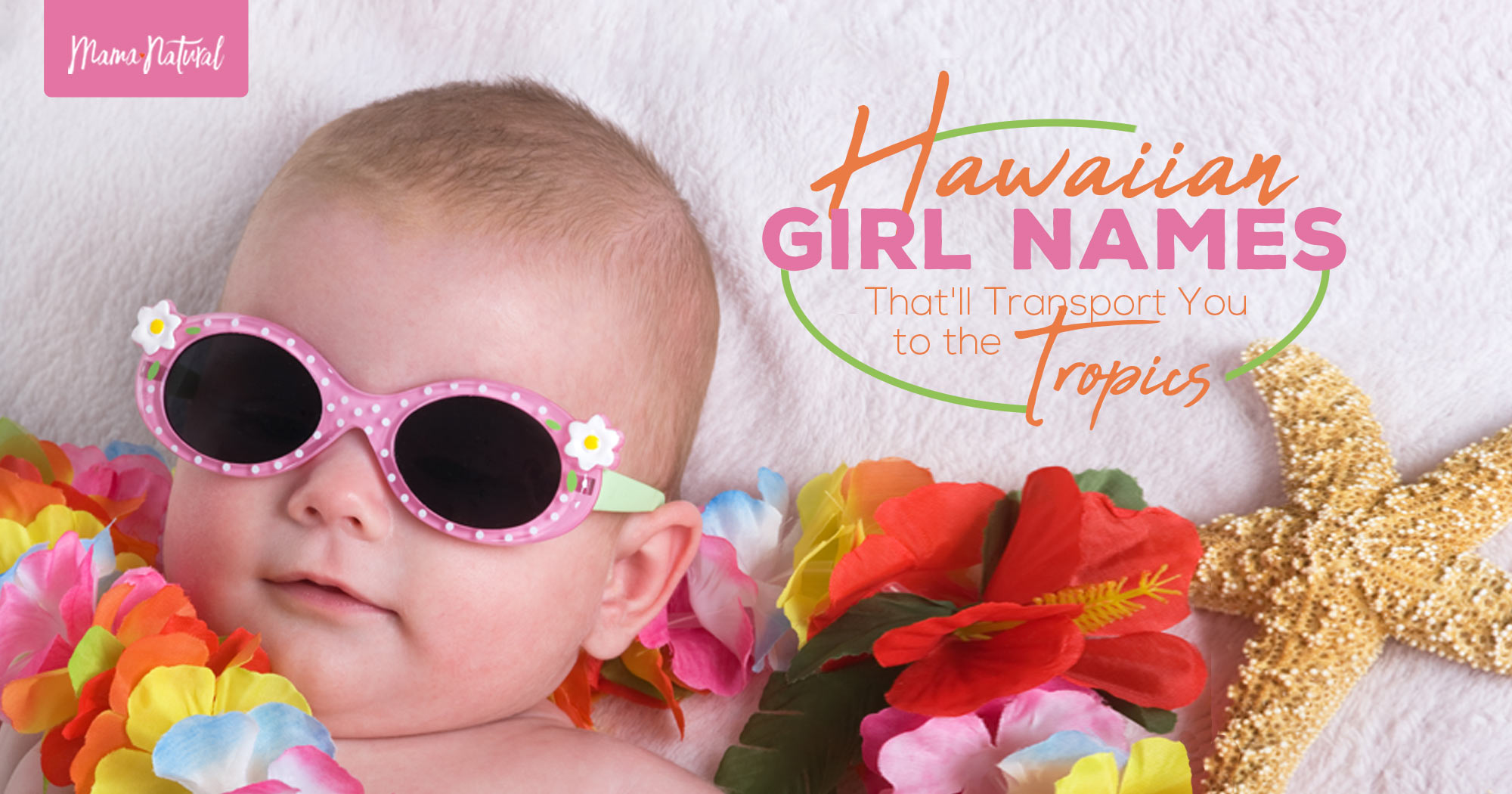Choosing a name for your baby girl is one of the most important decisions you'll make as a parent. Hawaiian names for girls are gaining popularity worldwide due to their melodic sounds and deep cultural significance. These names often carry beautiful meanings that reflect nature, love, and spirituality.
Hawaiian culture is rich with traditions and values that are beautifully expressed through names. Whether you're looking for something traditional or unique, Hawaiian names offer a wide range of options that can connect your child to the islands' rich heritage. In this article, we'll explore the beauty and meaning behind some of the most popular Hawaiian names for girls.
This guide will not only provide you with a list of beautiful Hawaiian names but also delve into their cultural significance, pronunciation tips, and historical context. Let's dive in and discover the magic of Hawaiian names for your little princess.
Read also:Discover The Enchanting Voice Of Anna Frozen
Table of Contents
- Introduction to Hawaiian Names
- Popular Hawaiian Names for Girls
- Cultural Significance of Hawaiian Names
- How to Pronounce Hawaiian Names
- Historical Context of Hawaiian Naming Traditions
- Long-Tail Hawaiian Names for Girls
- Nature-Inspired Hawaiian Names
- Spiritual and Mythological Hawaiian Names
- Modern Twist on Traditional Hawaiian Names
- Tips for Choosing the Perfect Hawaiian Name
- Conclusion
Introduction to Hawaiian Names
Hawaiian names for girls have a timeless appeal that transcends cultural boundaries. These names often reflect the natural beauty of the islands, such as oceans, mountains, and flowers. They also carry deep meanings that convey love, peace, and harmony.
Why Hawaiian Names Are Special
Hawaiian names are special because they are deeply rooted in the islands' rich cultural heritage. Each name tells a story and carries a unique meaning that connects the individual to their ancestors and the land.
For example, the name "Leilani" means "heavenly flowers" or "royal child," while "Kailani" means "sea and sky." These names not only sound beautiful but also have profound meanings that resonate with many parents seeking a meaningful name for their child.
Popular Hawaiian Names for Girls
Here is a list of some of the most popular Hawaiian names for girls, along with their meanings:
- Leilani: Heavenly flowers or royal child
- Kealoha: The love
- Maile: A fragrant vine or lei material
- Kailani: Sea and sky
- Hinalea: A sacred fish
What Makes These Names Popular?
These names are popular because they are both beautiful and meaningful. They often combine elements of nature, royalty, and spirituality, making them appealing to parents who want a name with depth and significance.
Cultural Significance of Hawaiian Names
Hawaiian names are more than just words; they are a reflection of the islands' rich cultural heritage. In Hawaiian culture, names are believed to have power and significance, influencing the individual's life path and destiny.
Read also:December 20 Sagittarius A Cosmic Adventure For Fire Signs
Traditions Behind Naming
In traditional Hawaiian culture, names were often chosen based on family history, significant events, or spiritual guidance. Elders played an important role in naming ceremonies, ensuring that the chosen name aligned with the child's destiny and the family's values.
For example, a child born during a storm might be named "Keao" (dawn) to symbolize the breaking of the storm and the arrival of a new day. Similarly, a child born into a family of fishermen might be named "Kai" (sea) to honor their connection to the ocean.
How to Pronounce Hawaiian Names
One of the challenges of choosing a Hawaiian name is learning how to pronounce it correctly. Hawaiian language follows specific rules that make pronunciation easier once you understand the basics.
Basic Rules for Pronunciation
- Vowels are pronounced as in Spanish or Italian: A (ah), E (eh), I (ee), O (oh), U (oo).
- The glottal stop (ʻ) is treated as a consonant and is pronounced as a pause in the word.
- Consonants are pronounced as in English, except for "W," which can sometimes sound like "V."
For example, "Leilani" is pronounced LAY-ee-LAH-nee, while "Kailani" is pronounced KYE-ah-LAH-nee.
Historical Context of Hawaiian Naming Traditions
Hawaiian naming traditions have evolved over centuries, influenced by both indigenous practices and external factors such as colonization and modernization. Understanding the historical context can help appreciate the significance of these names.
Influence of Colonization
During the period of colonization, many Hawaiian names were replaced with English names, leading to a decline in traditional naming practices. However, in recent decades, there has been a resurgence of interest in preserving and reviving Hawaiian culture, including naming traditions.
Today, many families choose to incorporate both Hawaiian and English names for their children, creating a blend of old and new traditions.
Long-Tail Hawaiian Names for Girls
Long-tail Hawaiian names offer even more depth and meaning, often combining multiple elements to create unique and beautiful names. Here are some examples:
- Kealohilani: The love of the heavens
- Kaʻiwakiloumoku: The sacred child of the mountain
- Hinaleialohea: The sacred fish of love
Why Choose a Long-Tail Name?
Long-tail names are perfect for parents who want a truly unique and meaningful name for their child. These names often carry multiple layers of meaning and can be passed down through generations as a family legacy.
Nature-Inspired Hawaiian Names
Hawaiian culture has a deep connection to nature, and this is reflected in many of their names. Nature-inspired names are a popular choice for parents who want to honor the beauty of the natural world.
Examples of Nature-Inspired Names
- Maile: A fragrant vine used in lei-making
- Kalena: The red flower
- Pua: Flower
These names not only sound beautiful but also connect the individual to the natural world, promoting a sense of harmony and balance.
Spiritual and Mythological Hawaiian Names
Hawaiian mythology is rich with stories of gods, goddesses, and spiritual beings, many of which are reflected in names. Spiritual and mythological names are a popular choice for parents who want to honor the islands' spiritual heritage.
Examples of Spiritual Names
- Hinalea: A sacred fish associated with the goddess Hina
- Kane: The god of creation
- Pele: The goddess of fire and volcanoes
These names carry deep spiritual significance and can inspire a sense of connection to the divine.
Modern Twist on Traditional Hawaiian Names
While traditional Hawaiian names are beautiful and meaningful, some parents prefer a more modern twist. Combining Hawaiian names with English names or using nicknames can create a unique and contemporary name that still honors Hawaiian heritage.
Examples of Modern Combinations - Lei + Anna = Leiana
- Kai + Lily = Kailey
- Kealoha + Grace = Kealohagrace
These combinations offer the best of both worlds, allowing parents to honor tradition while embracing modern trends.
Tips for Choosing the Perfect Hawaiian Name
Choosing the perfect Hawaiian name for your baby girl can be a rewarding experience. Here are some tips to help you make the right decision:
- Consider the meaning and significance of the name.
- Learn how to pronounce the name correctly.
- Think about how the name will sound with your last name.
- Ask family members for input and guidance.
- Research the cultural and historical context of the name.
Conclusion
Hawaiian names for girls offer a beautiful and meaningful way to connect your child to the rich cultural heritage of the islands. Whether you choose a traditional name, a long-tail name, or a modern combination, each name carries its own unique significance and beauty.
We encourage you to explore the options and find the perfect name for your little one. Don't forget to share your thoughts and experiences in the comments below, and feel free to explore other articles on our site for more naming inspiration.
Remember, the name you choose will be with your child for life, so take your time and make a decision that feels right for your family.
References:
- Hawaiian Dictionary by Mary Kawena Pukui and Samuel H. Elbert
- The Hawaiian Language by Albert J. Schütz
- Hawaiian Names and Naming Traditions by Hawaiian Cultural Center


